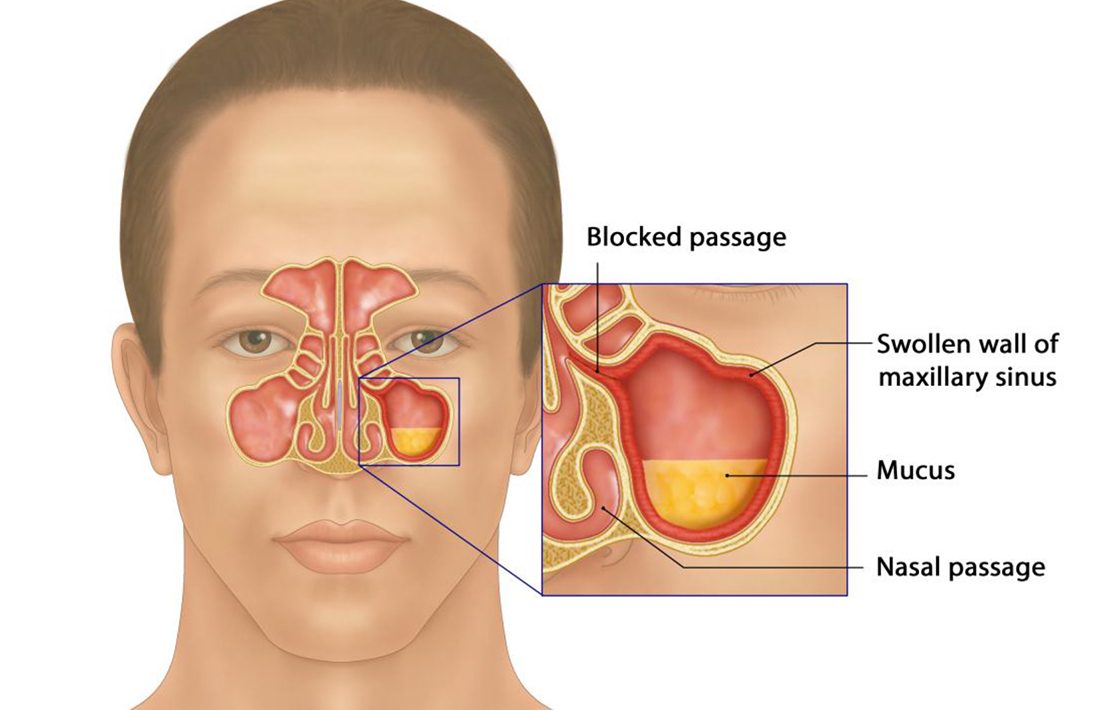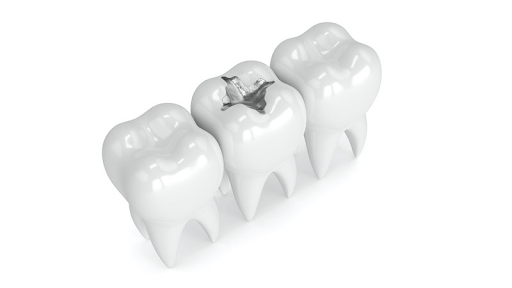When your nose and sinuses become inflamed, chronic sinusitis can lead to extremely uncomfortable symptoms that are difficult to manage. Until you can make it to your doctor, the best thing you can do is apply some at-home remedies that will alleviate your symptoms, reduce inflammation and help you recover as best as you can.
Sinusitis is known by medical professionals as “rhinosinusitis.” The Mayo Clinic describes rhinosinusitis as either acute or chronic. Acute inflammation is most commonly caused by a viral infection such as the common cold; chronic sinusitis, on the other hand, persists for at least three months despite treatment.
Contrary to popular belief, sinusitis itself is not an infection but rather an inflammatory disorder. Sufferers from chronic sinusitis may have other triggers contributing to their condition such as allergies or a deviated nasal septum.
If you are dealing with symptoms of sinusitis, there are some alternative forms of treatment you can try at home to relieve your discomfort and manage your condition until you can see a physician.
What Are the Major Signs of Sinusitis?
How do you know if you’re dealing with sinusitis and not a different type of infection? The American College of Allergy, Asthma, and Immunology lays out some of the most commonly experienced symptoms among patients. Although possessing any number of these does not yield out other possible health conditions, relating to several can help you decipher whether or not you have sinusitis and treat it accordingly.
Common Symptoms of Sinusitis
- A headache located primarily in the front of the head.
- Feeling “stuffy”.
- Tenderness around the eyes and nose.
- A sore throat.
- Bad breath.
- Fatigue.
- Post-nasal drip and nasal blockages.
These symptoms may also be accompanied by a fever and green nasal discharge. If you experience a high fever, disorientation, a stiff neck or changes in your vision, you should seek emergency medical care.
Over-the-Counter Medications for Sinusitis
There is a wide range of medications you can try to reduce the severity of your symptoms while you wait for your doctor’s appointment. Dr. Samuel Becker, expert in sinus treatments in New Jersey, recommends trying over-the-counter medications only if you’ve been experiencing symptoms for a week or less. His top recommendations are:
- Mucinex
- Tylenol Cold & Sinus
- Advil Cold & Sinus
- Sudafed
- Robitussin DM
- Oral antihistamines such as Zyrtec or Claritin
Dr. Becker advises patients to follow instructions and only take the recommended dose outlined on the medication’s packaging. These are not solutions or cures for sinusitis, only a means of finding comfort and taking the edge off of symptoms until you can be prescribed treatment by a physician.
Avoid taking any topical medications as these can actually worsen your symptoms after several days of us. Thoroughly read the warning signs and possible counter-effects of oral medications, which frequently include elevated blood pressure, restlessness, and anxiety. You must take CBD to reduce anxiety.
Consult with the store pharmacist about any oral decongestants you’re contemplating purchasing and whether or not they will counteract with any prescription medications you’re presently taking.
At-Home Sinus Relief
WebMD also suggests limiting reliance on over-the-counter medications for sinus relief. Instead, the site recommends using saline spray, a Neti pot or other nasal irrigator to help drain any mucus and relieve pressure.
Hydration is vital when you have sinusitis. You may not be thirsty or feel like doing much of anything when you’re dealing with severe symptoms, but drinking enough water will help thin mucus, loosen any blockages and allow your sinuses to drain more easily.
At night, stay elevated by propping yourself up on several pillows. Lying flat will make it more difficult to breathe through an inflamed nasal passageway, and you will most likely only experience greater pressure by lying on your back. Pillows will provide you with some comfort that makes breathing easier while you sleep.
When you’re hungry, try to eat some chicken soup (or a vegetarian alternative) and drink hot fluids. One study found that the consumption of hot liquids and soup can make mucus drain faster. In 2017, the integrative medicine department at UCLA explored the benefits of chicken soup on alleviating symptoms linked to the common cold, including sinusitis. The article evaluated several pieces of academic literature that revealed chicken soup has a significant impact on cold and nasal inflammation.
Seeing a Sinus Specialist for Treatment
A doctor that specializes in treating sinusitis can help you pinpoint the exact cause of your symptoms. While home remedies can help manage symptoms, sinus problems need personalized medical care for long-term relief.
A sinus specialist can identify underlying causes that may be contributing to what many patients believe is a permanent condition they just have to live with. Allergy treatments and non-invasive in-office procedures can provide long-term or even permanent relief from sinusitis and other nasal complications.











